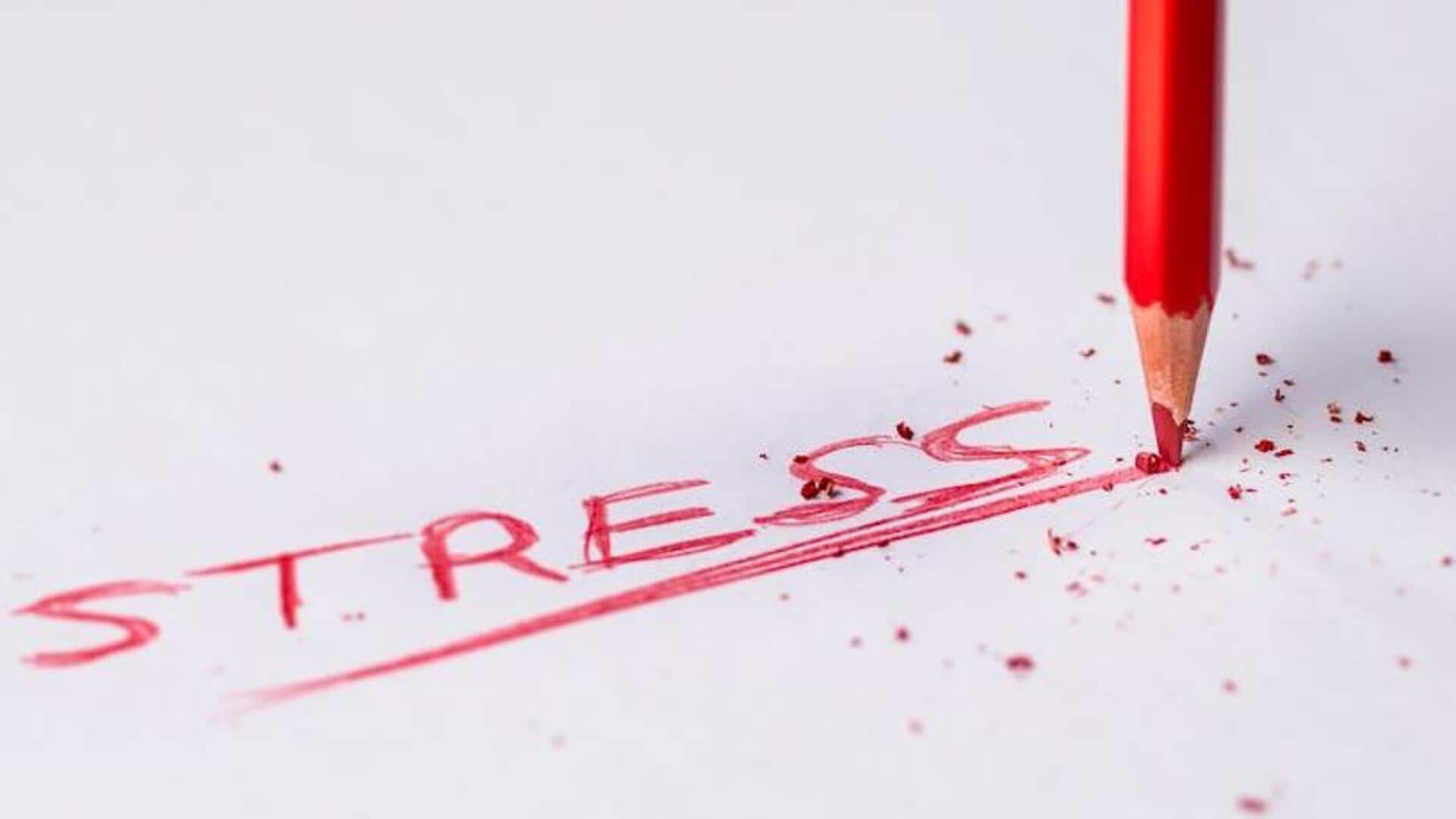
Quick and easy ways to reduce stress
What's the story
Evening reflections can be a powerful tool for reducing stress and promoting mental well-being. By taking time each evening to reflect on the day, individuals can gain insights into their emotions, identify stressors, and develop strategies for managing them. This practice encourages mindfulness and self-awareness, which are essential components of stress reduction. Here are five practical ways to incorporate evening reflections into your routine to help alleviate stress.
Writing practice
Journaling your thoughts
Journaling is an excellent way to process everyday experiences and emotions. Writing down your thoughts before bed allows you to declutter your mind and gain perspective on stressful situations. It helps in identifying patterns in behavior or thought processes that are causing stress. Just 10 minutes of writing about your day every night could lead to a better self-awareness and emotional clarity.
Positive focus
Practicing gratitude
Focusing on gratitude during evening reflections can shift your attention away from stressors to the positive aspects of life. Listing three things you are grateful for each day fosters a sense of contentment and reduces anxiety. This simple exercise encourages a positive mindset by highlighting what went well during the day, instead of dwelling on challenges or setbacks.
Relaxation technique
Mindful breathing exercises
Incorporating mindful breathing exercises into evening reflections promotes relaxation and reduces tension. Deep breathing techniques calm the nervous system by lowering heart rate and blood pressure, which helps alleviate stress symptoms. Practicing mindful breathing for five minutes before bedtime creates a peaceful transition from the day's activities to restful sleep.
Accomplishment acknowledgment
Reviewing daily achievements
Reflecting on what you achieved that day gives a sense of accomplishment that works against feelings of inadequacy or overwhelmed that are often accompanied by stress. By recognizing even the tiniest of accomplishments, you gain confidence in yourself and build resilience against future hurdles. Spending time every evening to think about what you accomplished helps boost your self-esteem.
Forward planning
Setting intentions for tomorrow
Setting intentions for the next day during evening reflections also helps in managing anticipatory anxiety as it provides structure and focus. By identifying key tasks or goals, you create a roadmap that guides your actions while reducing uncertainty about upcoming responsibilities. This proactive approach empowers you with control over your schedule, minimizing potential sources of stress related to time management or decision-making.